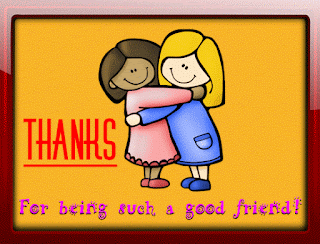Have you ever been to a baby shower, and everyone asks the expecting mother if she wants a boy or girl, and she says that it doesn't matter, as long as it is healthy?
What if the baby isn't healthy? Is that baby less worthy of being loved?
Now think of your friends. If you have a friend who has depression, you rally around them, bring them meals, text them to check up... For about 2 weeks. Then that illness is old news. You move on to the next thing. Because they must have figured out how to deal with it by now. Surely, they have decided to be happy again, right?
I know that we don't intentionally do these things. I don't know a single person who would maliciously exclude non-healthy people from their circle of friends.
But it occurs frighteningly often, mostly because it can be more work to maintain those relationships, or we don't understand their illness, and so we avoid them because we don't want to say the wrong thing and hurt someone's feelings.
When there is a person with a disability at your church, 9 times out of 10, the chances are that you will make a little bit of polite talk, but not really ask a lot of questions and truly get to know them, or invite them to your game night, because you don't want to accidentally offend them in some way, and honestly, you don't want to feel uncomfortable by being around them for an extended period of time.
When I take Chelsea out in public and people notice that she has a disability (which occurs more and more often as she gets older), most people walk by us and pretend they don't notice her little squeals and odd noises. But there is the occasional person that sees her, smiles, and tells her how beautiful her smile is, or that she has a cute laugh.
And that makes Chelsea GLOW. But she has no real friends, only superficial friends. Because it is hard to be Chelsea's friend. Nobody understands her, and sometimes she acts strangely, and it freaks kids out.
But there are also times when people notice Chelsea and actively avoid us because it scares them when a little girl makes strange growling noises and cackles. I had one little girl start to cry because she was scared of Chelsea.
So it sure seems like as a society, we only like healthy people. But my goal is to reach out to those who truly need a friend. The mom with post-partum depression. The boy with a genetic syndrome, or the girl with an intellectual impairment.
Because I want everyone to have a friend!
I know that we don't intentionally do these things. I don't know a single person who would maliciously exclude non-healthy people from their circle of friends.
But it occurs frighteningly often, mostly because it can be more work to maintain those relationships, or we don't understand their illness, and so we avoid them because we don't want to say the wrong thing and hurt someone's feelings.
When there is a person with a disability at your church, 9 times out of 10, the chances are that you will make a little bit of polite talk, but not really ask a lot of questions and truly get to know them, or invite them to your game night, because you don't want to accidentally offend them in some way, and honestly, you don't want to feel uncomfortable by being around them for an extended period of time.
When I take Chelsea out in public and people notice that she has a disability (which occurs more and more often as she gets older), most people walk by us and pretend they don't notice her little squeals and odd noises. But there is the occasional person that sees her, smiles, and tells her how beautiful her smile is, or that she has a cute laugh.
And that makes Chelsea GLOW. But she has no real friends, only superficial friends. Because it is hard to be Chelsea's friend. Nobody understands her, and sometimes she acts strangely, and it freaks kids out.
But there are also times when people notice Chelsea and actively avoid us because it scares them when a little girl makes strange growling noises and cackles. I had one little girl start to cry because she was scared of Chelsea.
So it sure seems like as a society, we only like healthy people. But my goal is to reach out to those who truly need a friend. The mom with post-partum depression. The boy with a genetic syndrome, or the girl with an intellectual impairment.
Because I want everyone to have a friend!


































